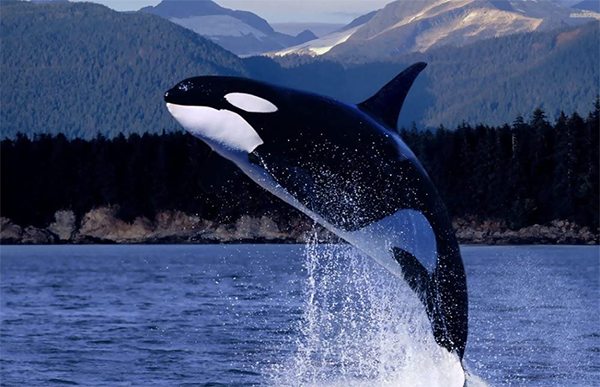Comment deadline is 5 p.m., Monday, June 8
— from Janet Thomas for Orca Relief Citizens’ Alliance —

The Southern Resident orcas are facing imminent extinction. Unlike other orca species they do not eat other marine mammals. Their primary diet is Chinook salmon–specifically the salmon that comes from the Fraser River in B.C. and migrates along the west side of San Juan Island. Tragically, the SRKWs access to their primary feeding area has been seriously impeded by unrelenting tourism activity that has effectively driven them away from accessing their diminishing food supply.
The Department of Fish & Wildlife is conducting a SEPA Environmental Impact Statement regarding rules and regulations for commercial whale-watching of Southern Resident orcas. Currently the only rule re: Southern Resident whale-watching is a 300-400-yard distance which is consistently violated. This scoping period is an opportunity to comment on expanded forms of regulation and mitigation measures that are specifically designed to save the SRKWs.
Monday, June 8 at 5 p.m. is the deadline for submitting public comments.
After a year of intensive meetings, WA Gov.Inslee’s appointed SRKW Task Force voted almost unanimously for a 3-5 year moratorium on whale-watching of the Southern Residents. Unfortunately, industry lobbyists managed to get it removed from consideration.
In a comprehensive science-based letter (view HERE) to the National Marine Fisheries, Dr. Timothy Ragen, the retired Director of the U.S. Marine Mammal Commission ends with:
I urge NOAA to implement, maintain, and enforce a moratorium on whale-watching (by all vessels, including commercial and recreational) of SRKWs in U.S. waters until such time as the population no longer needs the protection of the ESA. The central question here is whether NOAA, on our country’s behalf, is willing to take the steps needed to save the SRKW population, not merely for ourselves, but for our children, grandchildren, and generations to come.”
Please ask the Licensing Committee to put the SRKWs first and do everything possible to save them from extinction. This includes empowering the Department of Fish & Wildlife to create effective limitations and regulations, including a moratorium.
Again, HERE is the link to respond online.
Thank you for your concern and your action!
**If you are reading theOrcasonian for free, thank your fellow islanders. If you would like to support theOrcasonian CLICK HERE to set your modestly-priced, voluntary subscription. Otherwise, no worries; we’re happy to share with you.**








